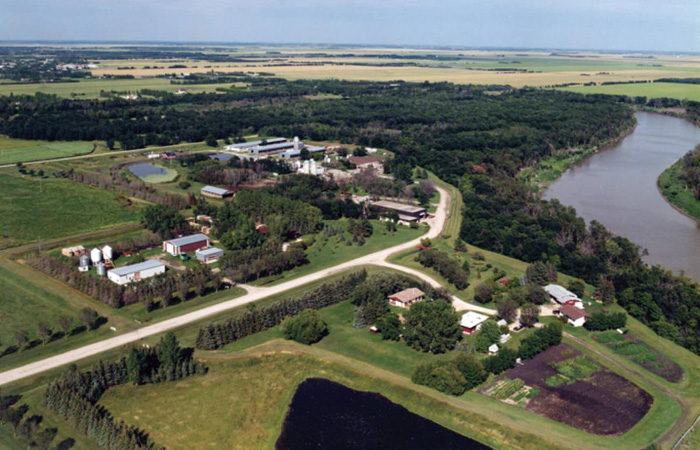The governments of Canada and Manitoba are providing $1.5 million for Manitoba Egg Farmers (MEF) to establish the Egg Layer Research and Public Engagement Facility at the University of Manitoba’s (UM) Glenlea Research Station.
“As we celebrate World Egg Day, I am pleased to support the ongoing research at the UM that also supports our great Manitoba egg farmers,” said Agriculture and Resource Development Minister Ralph Eichler. “Our province’s egg farmers account for 10 per cent of the country’s egg production and generate about $120 million in farm cash receipts. We look forward to the continuation of research that helps drive interest in eggs and advances the egg industry.”
The UM currently operates the only egg research facility in Manitoba, but this facility is in need of significant upgrades. The proposed new facility will advance and enhance research on modern egg production techniques and technologies. This new facility will help ensure Manitoba is home to world-class research on egg production and development in support of the Manitoba Protein Advantage Strategy, the minister noted.
“We thank our partners for their investment in research and training at the UM,” said Dr. Digvir Jayas, vice-president (research and international) at UM. “Researchers in the faculty of agricultural and food sciences are leaders in the field of laying hens and eggs. This new facility will be the hub for egg and layer research aligned with industry priorities on welfare and sustainability, and provide world-class training to grow our local and national economies.”
Manitoba Egg Farmers will also partner on the cost of construction, and the UM will continue to own and operate the facility once it is completed. This partnership-based effort will cement Manitoba as a Canadian leader in egg research, attracting and supporting highly qualified graduate students and growing employment opportunities in the sector, Eichler said.
“This new, state-of-the-art facility will showcase what we do as modern egg farmers for the benefit of the general public. It’s important to us that we open the barn doors and show consumers how eggs are produced and how hens are housed,” said Catherine Kroeker-Klassen, board chair, Manitoba Egg Farmers. “It will be the most modern egg and layer research, education and training facility in all of Canada and the only one purpose-designed to connect with the general public.”
World Egg Day was established in 1996 and is celebrated on the second Friday in October each year. Eggs are versatile, nutritious and an excellent source of high-quality protein. One of the best things about eggs is that they are local, as all eggs sold in Manitoba grocery stores are produced by local egg farmers.
Funding for this initiative is provided under the Canadian Agricultural Partnership, which is a five-year, $3-billion investment by Canada’s federal, provincial and territorial governments to strengthen and grow Canada’s agri-food and agri-products sectors. This commitment includes $2 billion for programs cost-shared by the federal, provincial and territorial governments that are designed and delivered by provinces and territories.




